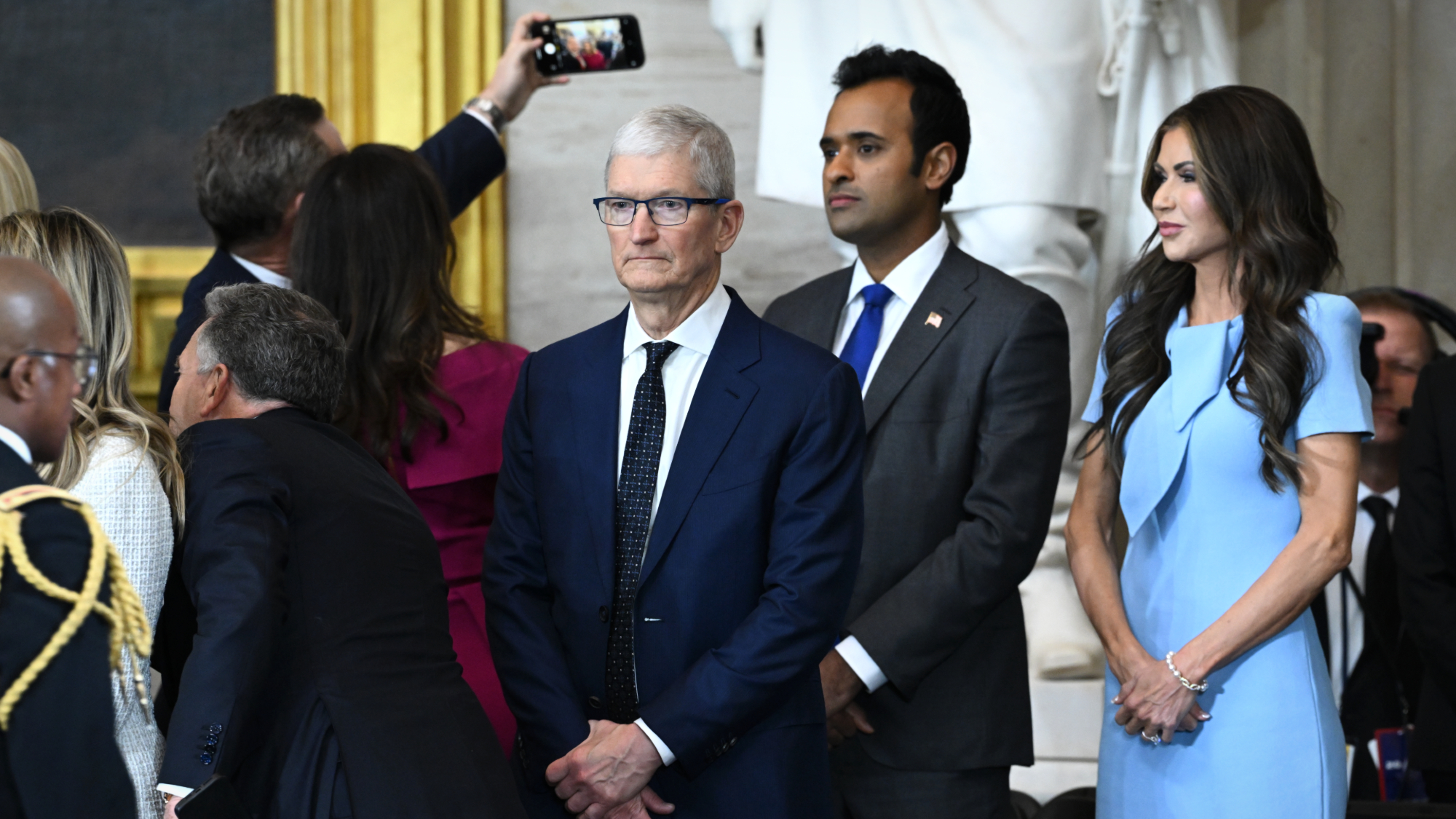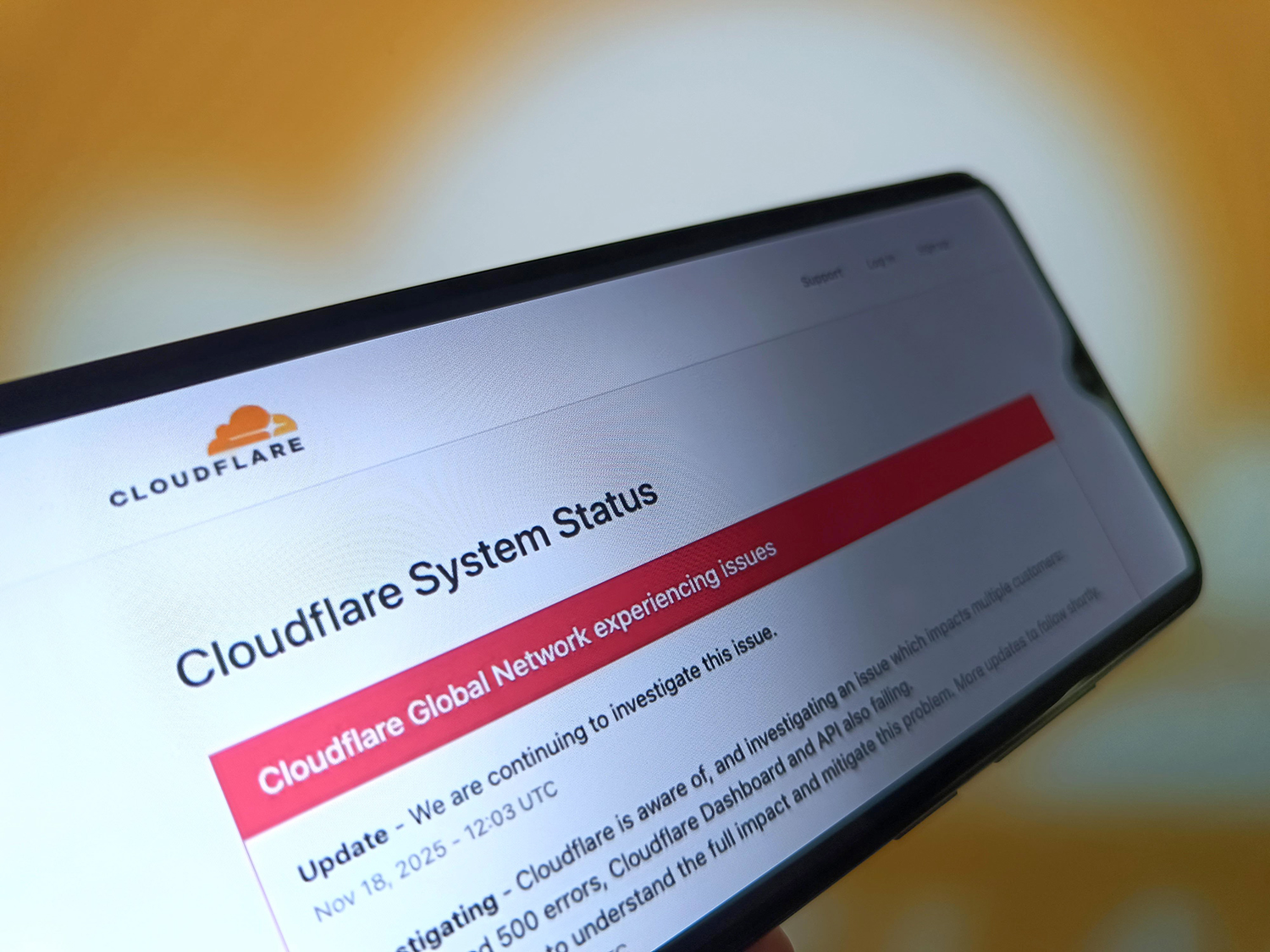Apple pledges $500B in US spending over 4 years
This is a win for Trump, who has pushed to move manufacturing back to the US


A free daily email with the biggest news stories of the day – and the best features from TheWeek.com
You are now subscribed
Your newsletter sign-up was successful
What happened
Apple said Monday it would spend $500 billion in the U.S. over the next four years, including hiring 20,000 new employees and helping build a large server factory in Houston to power its artificial intelligence offerings. President Donald Trump, who met with CEO Tim Cook last week, took credit for Apple's announcement, suggesting the company "wouldn't be investing 10 cents" without "faith in what we are doing."
Who said what
"We are bullish on the future of American innovation, and we're proud to build on our longstanding U.S. investments," Cook said in a statement. Apple said its "largest-ever spend commitment" would include purchases from U.S. suppliers and production costs for its Apple TV+ streaming service. The "bulk of the money will constitute normal spending for the company," The Washington Post said, and "much of" the $500 billion was "previously planned investment."
Cook "knows how to play ball," Quartz said, and Monday's announcement was a "clear bid by Apple to help navigate the murkiness of Trump's trade war with China." In Trump's first term, Cook won exemptions from tariffs on iPhones assembled in China, after pledging $350 billion in U.S. investments and 20,000 new jobs. Apple made a similar pledge in 2021, at the start of President Joe Biden's term.
The Week
Escape your echo chamber. Get the facts behind the news, plus analysis from multiple perspectives.

Sign up for The Week's Free Newsletters
From our morning news briefing to a weekly Good News Newsletter, get the best of The Week delivered directly to your inbox.
From our morning news briefing to a weekly Good News Newsletter, get the best of The Week delivered directly to your inbox.
What next?
Apple will "continue to make the bulk of what it sells — iPhones, iPads and Macs — in Asia," The New York Times said, a longtime "point of contention" with Trump.
A free daily email with the biggest news stories of the day – and the best features from TheWeek.com
Rafi Schwartz has worked as a politics writer at The Week since 2022, where he covers elections, Congress and the White House. He was previously a contributing writer with Mic focusing largely on politics, a senior writer with Splinter News, a staff writer for Fusion's news lab, and the managing editor of Heeb Magazine, a Jewish life and culture publication. Rafi's work has appeared in Rolling Stone, GOOD and The Forward, among others.
-
 The environmental cost of GLP-1s
The environmental cost of GLP-1sThe explainer Producing the drugs is a dirty process
-
 Greenland’s capital becomes ground zero for the country’s diplomatic straits
Greenland’s capital becomes ground zero for the country’s diplomatic straitsIN THE SPOTLIGHT A flurry of new consular activity in Nuuk shows how important Greenland has become to Europeans’ anxiety about American imperialism
-
 ‘This is something that happens all too often’
‘This is something that happens all too often’Instant Opinion Opinion, comment and editorials of the day
-
 Will AI kill the smartphone?
Will AI kill the smartphone?In The Spotlight OpenAI and Meta want to unseat the ‘Lennon and McCartney’ of the gadget era
-
 TikTok finalizes deal creating US version
TikTok finalizes deal creating US versionSpeed Read The deal comes after tense back-and-forth negotiations
-
 Data centers could soon be orbiting in space
Data centers could soon be orbiting in spaceUnder the radar The AI revolution is going cosmic
-
 AI griefbots create a computerized afterlife
AI griefbots create a computerized afterlifeUnder the Radar Some say the machines help people mourn; others are skeptical
-
 Australia’s teen social media ban takes effect
Australia’s teen social media ban takes effectSpeed Read Kids under age 16 are now barred from platforms including YouTube, TikTok, Instagram, Facebook, Snapchat and Reddit
-
 Separating the real from the fake: tips for spotting AI slop
Separating the real from the fake: tips for spotting AI slopThe Week Recommends Advanced AI may have made slop videos harder to spot, but experts say it’s still possible to detect them
-
 Blackouts: Why the internet keeps breaking
Blackouts: Why the internet keeps breakingfeature Cloudflare was the latest in a string of outages
-
 X update unveils foreign MAGA boosters
X update unveils foreign MAGA boostersSpeed Read The accounts were located in Russia and Nigeria, among other countries
